About IVS
IVS 2022 Directing Board Elections
Candidates for Representative Positions
This page provides information about the candidates for representative positions
on the IVS Directing Board. Within each category candidates are listed alphabetically
by their family names. The Representatives will be elected by the Associate Members.
Candidates for Networks Representative
Hayo Hase
 Dr. Hayo Hase studied geodesy at the University of Bonn in the 1980s and was a member
of its VLBI group. He received his PhD in 1999 from the Technical University of Munich
on the topic of Global Reference Systems. In 1991-1993 he was responsible for the first
VLBI observations at O'Higgins Station in Antarctica. From 1994 to 2001, he worked at
Wettzell on the development and construction of the Transportable Integrated Geodetic
Observatory (TIGO). From 2001 to 2014, he directed the TIGO observatory in Concepción,
Chile. From 2015 until now, he has co-directed the Argentine-German Geodetic Observatory
(AGGO) near La Plata, Argentina.
Hayo has been involved with the IVS since its inception in 1999. He was IVS network
representative from 2007 to 2015 and 2019 to 2023. He organized the IVS General Meeting
2006 and initiated two IVS Technical Workshops in Wettzell (Feed, 2009; Technical
Specifications, 2012) to advance the idea and realization of a global VGOS network.
Since 2009, Hayo has served as the IVS representative to the European Committee on
Radio Astronomy Frequencies (CRAF), where he chairs the CRAF VGOS working group that
initiated the recently adopted ITU-R Report on Geodetic VLBI (2022) and an IAU resolution
on the protection of our radio telescope sites (2022). In addition, Hayo is known as
the feature editor of the IVS Newsletter.
Dr. Hayo Hase studied geodesy at the University of Bonn in the 1980s and was a member
of its VLBI group. He received his PhD in 1999 from the Technical University of Munich
on the topic of Global Reference Systems. In 1991-1993 he was responsible for the first
VLBI observations at O'Higgins Station in Antarctica. From 1994 to 2001, he worked at
Wettzell on the development and construction of the Transportable Integrated Geodetic
Observatory (TIGO). From 2001 to 2014, he directed the TIGO observatory in Concepción,
Chile. From 2015 until now, he has co-directed the Argentine-German Geodetic Observatory
(AGGO) near La Plata, Argentina.
Hayo has been involved with the IVS since its inception in 1999. He was IVS network
representative from 2007 to 2015 and 2019 to 2023. He organized the IVS General Meeting
2006 and initiated two IVS Technical Workshops in Wettzell (Feed, 2009; Technical
Specifications, 2012) to advance the idea and realization of a global VGOS network.
Since 2009, Hayo has served as the IVS representative to the European Committee on
Radio Astronomy Frequencies (CRAF), where he chairs the CRAF VGOS working group that
initiated the recently adopted ITU-R Report on Geodetic VLBI (2022) and an IAU resolution
on the protection of our radio telescope sites (2022). In addition, Hayo is known as
the feature editor of the IVS Newsletter.
Lucia McCallum
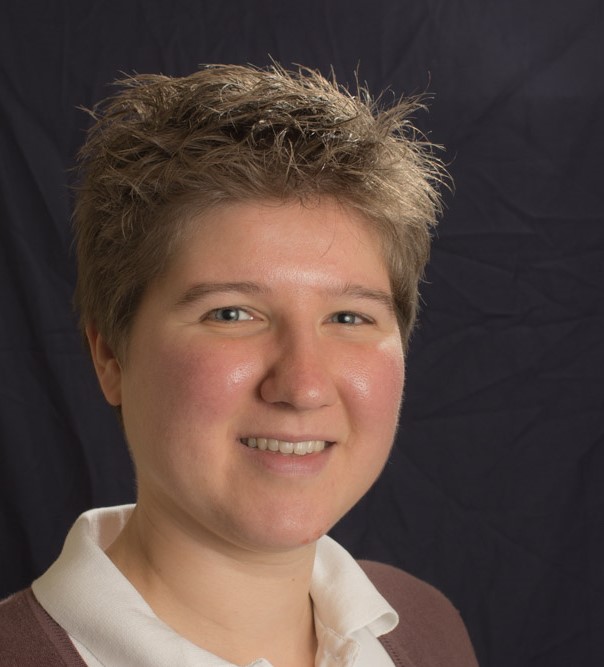 Lucia McCallum has been active in the IVS since 2008. After finishing her PhD on VLBI space
ties at the Technical University of Vienna (Austria) she moved to Australia (University of
Tasmania) in 2014 where she is the head scientist of the AuScope VLBI project which includes
the IVS stations in Hobart, Katherine, and Yarragadee. She is leading a research group for
geodetic VLBI and has experience in session planning, scheduling, observing, and analysis.
As a network representative, she is particularly interested in improving the feedback to the
network stations. Currently holding the position as secretary of the Asia-Oceania VLBI group,
Lucia has experience in coordinating international VLBI interests and is keen to support the
IVS as a global endeavor.
Lucia McCallum has been active in the IVS since 2008. After finishing her PhD on VLBI space
ties at the Technical University of Vienna (Austria) she moved to Australia (University of
Tasmania) in 2014 where she is the head scientist of the AuScope VLBI project which includes
the IVS stations in Hobart, Katherine, and Yarragadee. She is leading a research group for
geodetic VLBI and has experience in session planning, scheduling, observing, and analysis.
As a network representative, she is particularly interested in improving the feedback to the
network stations. Currently holding the position as secretary of the Asia-Oceania VLBI group,
Lucia has experience in coordinating international VLBI interests and is keen to support the
IVS as a global endeavor.
Candidates for Correlator and Operation Centers Representative
Phillip Haftings
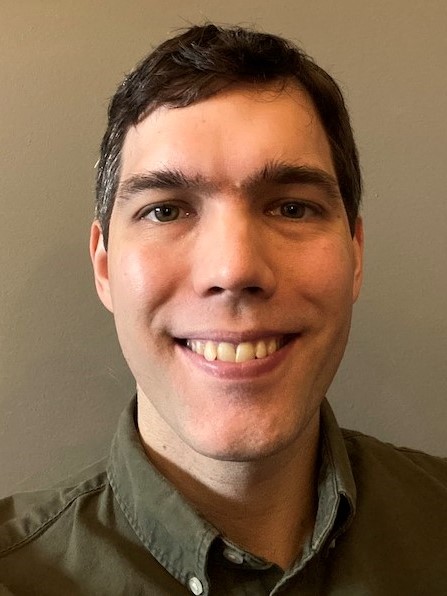 Phillip is a VLBI astronomer working at the United States Naval Observatory (USNO). He
earned a BS in Physics from the Georgia Institute of Technology, and worked for 6 years
at NASA's Goddard Space Flight Center (GSFC), calibrating, deploying, and analyzing data
from micro-pulse LiDARs studying atmospheric vertical structure and boundary layers for
the MPLNET project. Phillip was responsible for overhauling the MPLNET low-level processing
system, automating data processing, and building MPLNET's web-based data visualizer.
Phillip began working in VLBI at USNO in 2016, where he's manned the USNO geodetic VLBI
correlator for 6 years. Phillip was heavily involved in the design work for the current
generation USNO correlator, and the primary designer of the next generation USNO correlator,
specifically designed to accommodate VGOS data. He's been a staple at IVS functions, giving
talks at TOWs, working on projects including the early VGOS test sessions, heading the
working group for correlation reports, and writing support software for the IVS master
file and correlator report formats.
Phillip is a VLBI astronomer working at the United States Naval Observatory (USNO). He
earned a BS in Physics from the Georgia Institute of Technology, and worked for 6 years
at NASA's Goddard Space Flight Center (GSFC), calibrating, deploying, and analyzing data
from micro-pulse LiDARs studying atmospheric vertical structure and boundary layers for
the MPLNET project. Phillip was responsible for overhauling the MPLNET low-level processing
system, automating data processing, and building MPLNET's web-based data visualizer.
Phillip began working in VLBI at USNO in 2016, where he's manned the USNO geodetic VLBI
correlator for 6 years. Phillip was heavily involved in the design work for the current
generation USNO correlator, and the primary designer of the next generation USNO correlator,
specifically designed to accommodate VGOS data. He's been a staple at IVS functions, giving
talks at TOWs, working on projects including the early VGOS test sessions, heading the
working group for correlation reports, and writing support software for the IVS master
file and correlator report formats.
Candidates for Analysis and Data Centers Representative
Anastasiia Girdiuk
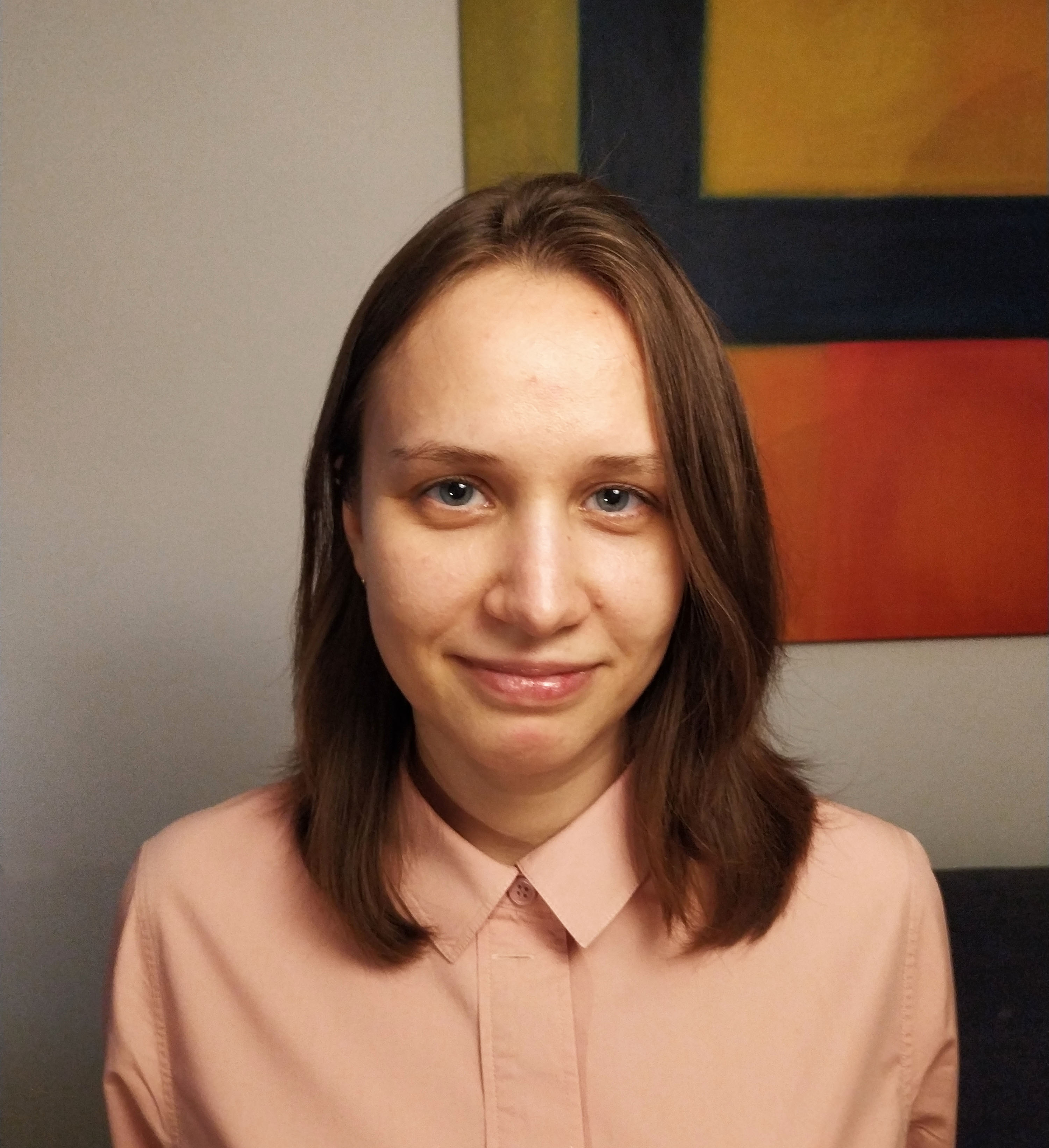 Anastasiia Girdiuk has received her specialization in astronomy from Saint Petersburg State
University (SPBU) in 2013 and then PhD in geodesy from Vienna University of Technology (TU Wien)
in 2017. Since 2018 she has been working at the IVS Analysis Center at the Federal Agency for
Cartography and Geodesy (BKG). Also, Anastasiia represents the IVS Data Center at BKG and works
in close cooperation with other IVS Data Center representatives in order to support routine
operations and re-establish the full mirroring procedure. The IVS Data Center at BKG has been
considerably re-organized under her coordination to fulfil the technical data exchange requirements
and maintain stable operation as well as receive other types of the VLBI data, namely VLBI Level 1.
There are also two other VLBI-structure-based projects coordinated by Anastasiia, for which the
BKG Data Center serves as a host. In one of them, EUVGOS, Anastasiia leads the analysis group.
In this year, Anastasiia is serving out the remainder of James Anderson's term as "Analysis and
Data Centers Representative."
Anastasiia Girdiuk has received her specialization in astronomy from Saint Petersburg State
University (SPBU) in 2013 and then PhD in geodesy from Vienna University of Technology (TU Wien)
in 2017. Since 2018 she has been working at the IVS Analysis Center at the Federal Agency for
Cartography and Geodesy (BKG). Also, Anastasiia represents the IVS Data Center at BKG and works
in close cooperation with other IVS Data Center representatives in order to support routine
operations and re-establish the full mirroring procedure. The IVS Data Center at BKG has been
considerably re-organized under her coordination to fulfil the technical data exchange requirements
and maintain stable operation as well as receive other types of the VLBI data, namely VLBI Level 1.
There are also two other VLBI-structure-based projects coordinated by Anastasiia, for which the
BKG Data Center serves as a host. In one of them, EUVGOS, Anastasiia leads the analysis group.
In this year, Anastasiia is serving out the remainder of James Anderson's term as "Analysis and
Data Centers Representative."
Minghui Xu
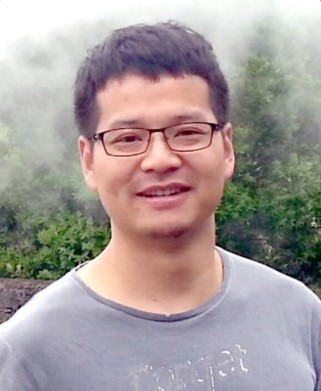 Minghui Xu is a very vivid and enthusiastic scientist, who published many interesting papers
in high class journals. He easily dives into new topics. Among his current working topics are
VGOS data analysis and short baseline solutions, VGOS source structure determined from closure
quantities and astrometry, such as the galactic aberration. He is involved in several international
cooperation groups, e.g., with Finland, South Africa, and China. For the IVS, he has been an active
member of Analysis Centers, Working Groups and Committees etc. We believe that Minghui can cover
the wide range of VLBI data analysis from visibilities to geodetic/astrometric parameters. For
completeness, Minghui's degrees are 01.07.2015, Doctor, geodesy and astrometry, Shanghai Astronomical
Observatory, University of Chinese Academy of Sciences, China; 10.2013-03.2015, Joint PhD study,
GFZ German Research Centre for Geosciences, Germany, supported by German DAAD scholarship; 30.06.2011,
Master, geodesy and astrometry, Shanghai Astronomical Observatory, University of Chinese Academy
of Sciences, China; 30.06.2009, Bachelor, geodesy, Wuhan University, China. Minghui's work record
is 09.2022-current, Research fellow, GFZ German Research Centre for Geosciences, Germany; 12.2019-08.2022,
Research fellow, Aalto University Metsähovi Radio Observatory, Finland; 04.2019-11.2019, Research
fellow, Huazhong University of Science and Technology, China; 08.2018-03.2019, Mercator fellow,
Technische Universität Berlin, Germany; 07.2016-07.2018, Associate professor, Shanghai Astronomical
Observatory, China; 07.2015-06.2016, postdoc, GFZ German Research Centre for Geosciences, Germany.
Minghui Xu is a very vivid and enthusiastic scientist, who published many interesting papers
in high class journals. He easily dives into new topics. Among his current working topics are
VGOS data analysis and short baseline solutions, VGOS source structure determined from closure
quantities and astrometry, such as the galactic aberration. He is involved in several international
cooperation groups, e.g., with Finland, South Africa, and China. For the IVS, he has been an active
member of Analysis Centers, Working Groups and Committees etc. We believe that Minghui can cover
the wide range of VLBI data analysis from visibilities to geodetic/astrometric parameters. For
completeness, Minghui's degrees are 01.07.2015, Doctor, geodesy and astrometry, Shanghai Astronomical
Observatory, University of Chinese Academy of Sciences, China; 10.2013-03.2015, Joint PhD study,
GFZ German Research Centre for Geosciences, Germany, supported by German DAAD scholarship; 30.06.2011,
Master, geodesy and astrometry, Shanghai Astronomical Observatory, University of Chinese Academy
of Sciences, China; 30.06.2009, Bachelor, geodesy, Wuhan University, China. Minghui's work record
is 09.2022-current, Research fellow, GFZ German Research Centre for Geosciences, Germany; 12.2019-08.2022,
Research fellow, Aalto University Metsähovi Radio Observatory, Finland; 04.2019-11.2019, Research
fellow, Huazhong University of Science and Technology, China; 08.2018-03.2019, Mercator fellow,
Technische Universität Berlin, Germany; 07.2016-07.2018, Associate professor, Shanghai Astronomical
Observatory, China; 07.2015-06.2016, postdoc, GFZ German Research Centre for Geosciences, Germany.
Candidates for Technology Development Centers Representative
Chet Ruszczyk
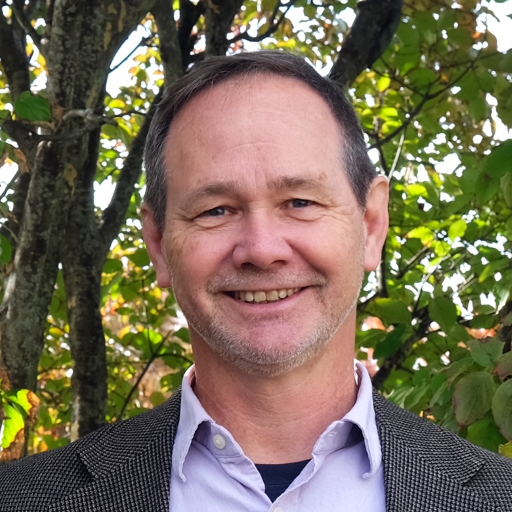 Chester ("Chet") Ruszczyk obtained his PhD in Electrical Engineering from Boston University,
Massachusetts, USA, in 1998. His career includes both hardware and software development
for numerous institutions. Ruszczyk is the Haystack Project Manager for the NASA Space
Geodesy Project and manages instrumentation development for VLBI, including e-VLBI,
recorders, digital backends, cable delay measurements systems, and many other projects
within the IVS. He has contributed extensively to IVS systems at Haystack and stations
around the globe, including signal chain design, buildout, and verification at several
stations, as well as VGOS system transition and verification, and is currently serving
as the Technology Development Centers representative on the IVS Directing Board.
Chester ("Chet") Ruszczyk obtained his PhD in Electrical Engineering from Boston University,
Massachusetts, USA, in 1998. His career includes both hardware and software development
for numerous institutions. Ruszczyk is the Haystack Project Manager for the NASA Space
Geodesy Project and manages instrumentation development for VLBI, including e-VLBI,
recorders, digital backends, cable delay measurements systems, and many other projects
within the IVS. He has contributed extensively to IVS systems at Haystack and stations
around the globe, including signal chain design, buildout, and verification at several
stations, as well as VGOS system transition and verification, and is currently serving
as the Technology Development Centers representative on the IVS Directing Board.
|